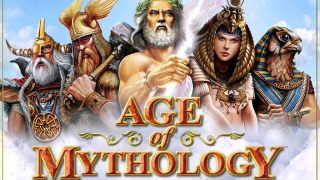Mythology and Folklore

Welcome to the web page of the course Mythology and Folklore! This humble web page is an on-going project I am undertaking as part of my dedicated initiative to transcend the borders of our classroom. Please ignore the advertisements embedded because I am subscribed to a free web hosting service. Nevertheless, I assure you that the same treatment of this favorite area of mine will be given to you just the same. I enjoin you to join me as we embark on this journey, and together, let us explore the all the joy and worthwhile facets of Mythology and Folklore.
“For Mythology is the handmaid of literature; and literature is one of the best allies of virtue and promoters of happiness.” ~ Thomas Bulfinch
Our Mythology and Folklore Edmodo online class platform
As a support to augment our limited class contact hours, we will likewise utilize the functionalities of the website edmodo.com to the fullest. This site will host our online quizzes, online assignments, etc.
To complete your argumentation and debate learning experience, enroll in our edmodo.com online class platform. Here’s how:
- Use this group code to enroll: b5af4m
- Go to www.edmodo.com
- Click the button “I’m a Student”
- Fill in the needed information such as: First Name, Last Name, the group code, Email address, choose a Username and a Password (you need to remember the Username and Password), then click the button “Submit”
- You are now enrolled! You need to customize your profile by adding information about you, upload a profile image, and other details.
- Your interface is set like a social media feed where you can post status updates, message your friends and classmates including your teacher, friend/unfriend someone and follow someone or some posts.
- Enjoy!
Course description
Mythology and Folklore is a course which orients students into what we call the background of literature – mythology and folklore. It deals with the stories of god and goddesses and how they influence man in his search for meaning in his life. The study of folklore gives a glimpse of man’s early literary explanation of natural things around him. It also provides a study on the body of mythological and folk narratives from different countries to gain deeper insights into “man’s origin”, his desires, fears, instincts and needs, in general and the different cultural patterns of countries, in particular.
Course intended learning outcomes (Cilos)
At the time of completion of the course, the students shall be able to:
- describe the early attempts of man to explain forces in nature and other phenomena in his existence through mythological works;
- discuss the importance of mythology as the background of literature;
- criticize the distinct characteristics of gods and goddesses;
- reflect how mythological stories about gods, men and nature try to explain various natural phenomena;
- compare and contrast various heroes in mythological stories; and
- create a term paper on the values presented in the stories as you reflect on personal issues surrounding such.
Course topics
Prelim Period (Weeks 1-6)
Orientation. TIP mission-vision, Cilo, Pilo, Graduate attributes, Syllabus, Course requirements and Class Rules, Introduction to Mythology, Background, and its importance; The creation, the generations of gods and goddesses: The Hecantonchires, Cyclopes and Giants, The Titans, The Olympians, The war in heaven and on earth, Titanomachia, Gigantomachia, The gods of heavens, the seas, and the underworld, The greater gods and goddesses, The minor gods and goddesses, The creation of man and the earliest heroes, The Four Ages of Man, Pandora’s Box, Prometheus and Io, Europa and The Flower Myths. Narcissus, Hyacinth and Adonis.
Midterm Period (Weeks 7-12)
Stories of Love and Adventure, Cupid and Psyche, Venus and Adonis, Minerva and Arachne, Phaeton, Pegasus and Bellerophon, Otus and Ephialtes, Daedalus and Icarus, Midas, Aesculapius, The Danaids, Glaucus and Scylla, Erysichthon, Eight Brief tales of lovers, Pyramus and Thisbe, Orpheus and Eurydice, Ceyx and Alcyone, Pygmalion and Galatea, Baucis and Philemon, Endymion, Daphne and Apollo, Alpheus and Arethusa, Five great heroes before the Trojan War, Jason, Perseus, Theseus, Hercules, Atalanta. The Trojan War. Iliad and Odyssey.
Final Period (Weeks 13-18)
The Royal Families of Mythology, The Royal House of Atreus, Tantalus and Niobe, Agamemnon and his Children, Iphigenia among the Taurians, The Royal House of Thebes, Cadmus and his children, Oedipus, Antigone, Seven against Thebes, The Royal House of Athens, Cecrops, Procne and Philomela, Procris and Cephalus, Orithyia and Boreas, Creusa and Ion, The Mythology of the Norse, The creation and the nine realms, The Norse gods and goddesses, The Tales of Norse gods and goddesses, The story of Signy and Sigurd, The adventures of Thor, The Ragnarok, The Mythology of the Egyptians, The Egyptians gods and goddesses, The Book of the Dead, The Mythology of the Hindus, The Hindu gods and goddesses, The earlier generation, The later generation, The Hinduism Trinity, The Avatars of Vishnu, Ramayana, Mahabharata. Culminating Requirement/Activity.
References
- Bendix, Regina F. (2012) A Companion To Folklore. Massachusetts: Wiley – Blackwell Publishing.
- Hamilton, Edith (2012) Mythology : Timeless Tales of Gods and Heroes. New York, New York : Grand Central Publishing.
- Harris, Stephen L. (2012) Classical Mythology: Images And Insights. New York: McGraw-Hill Publishing.